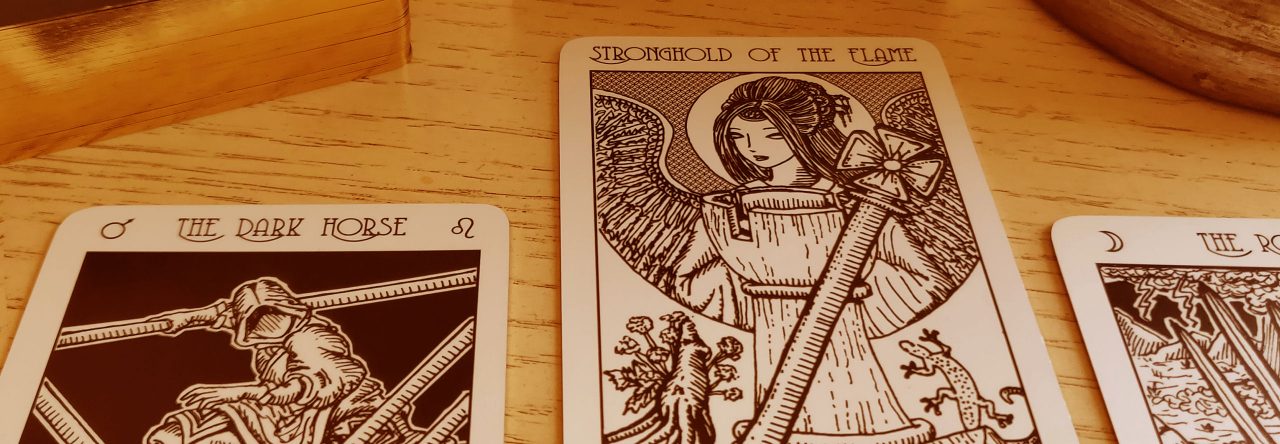Tackling the legacy of racial injustice and white supremacy by applying Buddhist principles to take down privilege and trigger collective awakening, ministered by African-American Buddhists who temper Black prophetic traditions with the Dharma may seem ambitious, but that would be the incredible premise of Radical Dharma: Talking Race, Love, and Liberation by Rev. angel Kyodo Williams, Lama Rod Owens, with Dr. Jasmine Syedullah. With chapter sections like “The Abolition of Whiteness” and “A Theory of Queer Dharma,” Radical Dharma reads like a sermon at the kind of church I would want to attend regularly.
The book is philosophy; the book is in part memoir on spiritual journeying (“Remembering in Seven Movements” by Lam Rod Owens) and in part the proposition of a new religious doctrine, Radical Dharma. Through Radical Dharma, people of color and those from marginalized groups can finally achieve the healing they need and recover from the traumas of social injustice.
Sensei and Rev. angel Kyodo Williams wrote a powerful, moving prayer, moved by the events of 9/11– the Warrior-Spirit Prayer of Awakening. Here it is:


Radical Dharma is about creating social change by engaging spirituality and more specifically, Eastern spiritual and religious practices. There is a nonlinear stream-of-consciousness style to the organization of the book. Interspersed between provocative chapters on social justice theory are memoir and transcripts of dialogue between the authors and activists. williams, Owens, and Dr. Syedullah use the Socratic Method to instruct the reader. Their prose reads like poetry, like mantras, and like homily, all to give impetus to the social justice movement in America.
“Contrary to popular belief, in the United States, freedom is a prison,” reads one notable line. “Rather than envision freedom as our inoculation from difference, as freedom from a collective commitment to those still in bondage, I am interested in how we can make possible a new politics of friendship, a new practice of the political, a new way of being together. . . What we need now are sweet ways for everyone to remain fugitive within the domain of state-sanctioned violence and neglect that would otherwise render our lives immaterial,” writes Syedullah (“What the World Needs Now”).
Radical Dharma is about raising the Black prophetic voice from a point of view that is not Christianity, which hasn’t been done since Malcolm X. For williams, Owens, and Syedullah, social justice empowerment includes the following spiritual practices:
- time in nature
- focused thought
- centering prayer
- movement practices
- mindfulness
- Shamatha/Vipassana meditation
- just sitting
- other forms of meditation
The aspiration of Radical Dharma is to take the “lotus out of the mud.” Toward that aspiration, Radical Dharma: Talking Race, Love, and Liberation achieves a neoteric milestone in spiritual-social justice transcendence. Radical Dharma is a spiritual guidebook for liberation from marginalization. It was, above all else, an incredible read. The book engaged me to such an extent that I finished it in one weekend.
![]()
FTC Disclosure: In accordance with Title 16 of the U.S. Code of Federal Regulations Part 255, “Guides Concerning Use of Endorsements and Testimonials in Advertising,” I received the book Radical Dharma from the publisher, North Atlantic Books, for prospective review. Everything I’ve said here is sincere and accurately reflects my opinion of the deck and book set.


Buddhists believe that everyone should be treated equally because we all have ‘Buddha Nature’, ie the ability to become enlightened. It does not matter about our culture, race or background. Once enlightenment has been reached, there are no divisions at all. If we try to tie Buddhism to the constraints of superficial things like colour and race, gender or anything we can identify with, you end up with a bar to enlightenment. The best teachings I have found that can take you beyond form in to the formless is Eckhart Tolle.
LikeLike
The phrase “The Abolition of Whiteness” is ironically racist and small minded… make it make sense
LikeLike